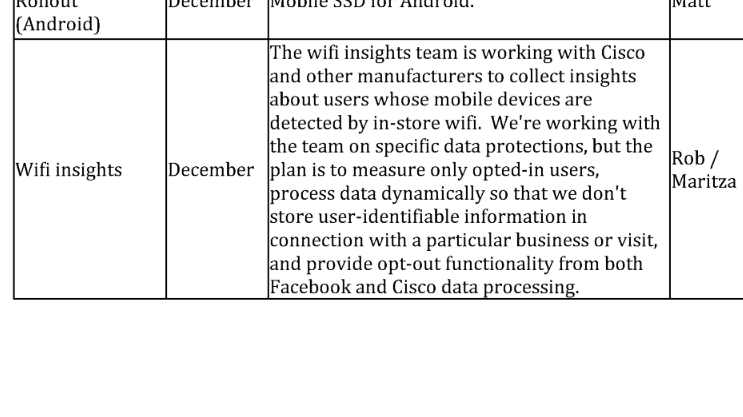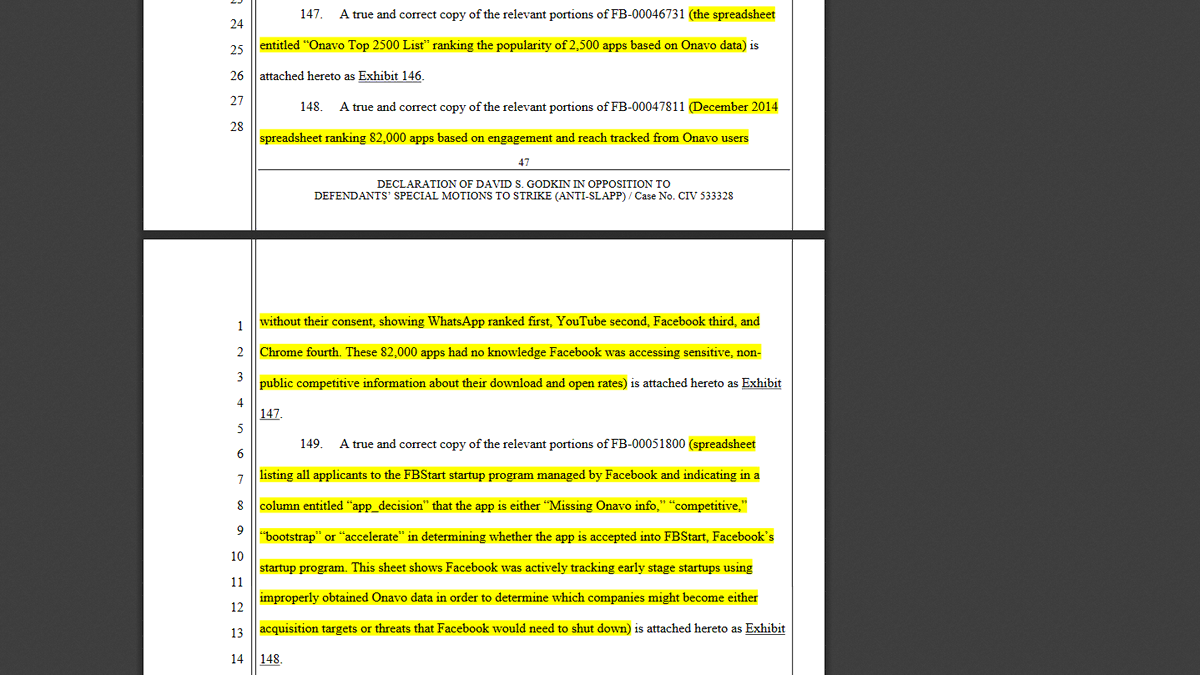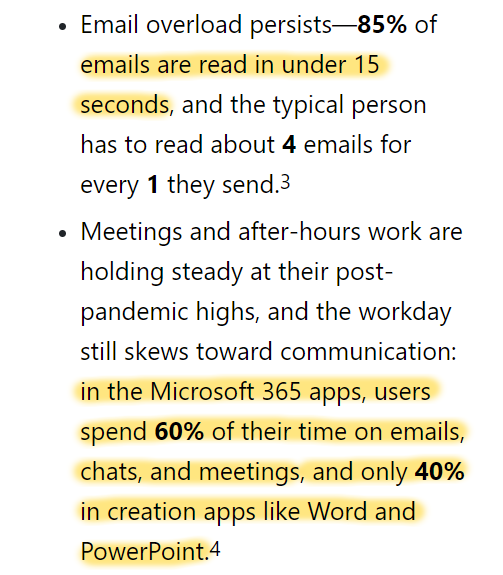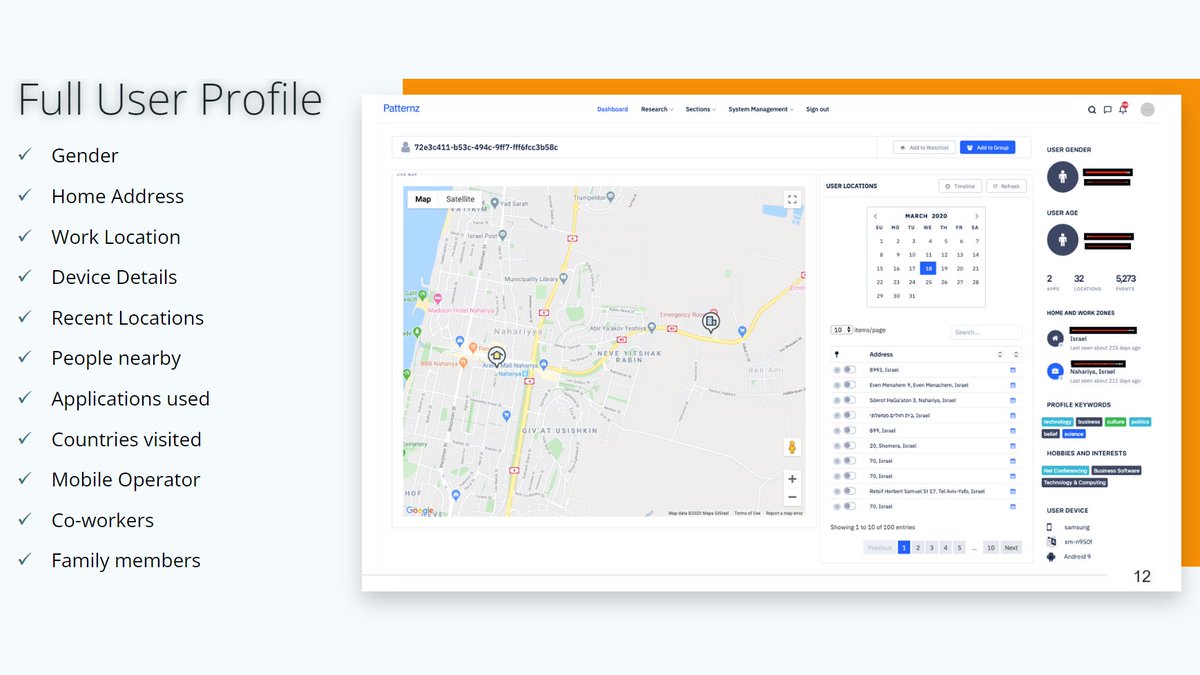Very interesting stuff in the leaked Facebook documents, indeed.
See e.g. from page 1561:
dataviz.nbcnews.com/projects/20191…
For example, Facebook did actually analyze "call log data (e.g. duration/frequency/recency of incoming/outgoing calls/texts)" and use it for friend suggestions.
See e.g. from page 1561:
dataviz.nbcnews.com/projects/20191…
For example, Facebook did actually analyze "call log data (e.g. duration/frequency/recency of incoming/outgoing calls/texts)" and use it for friend suggestions.

See also @PrivacyMatters's thread:
https://twitter.com/PrivacyMatters/status/1193932478316261377
@PrivacyMatters Facebook was "working with Cisco and other manufacturers to collect insights about users whose mobile devices are detected by in-store wifi".
(the whole table is from an email dated December 11, 2013)
(the whole table is from an email dated December 11, 2013)

@PrivacyMatters In 2013, FB considered to partner with a firm who provides "credit verification and scoring services", "sees 90% of credit card transactions in the US" + "buys the anonymized, user level transaction data directly from the banks and then works with Epsilon to re-identity the data" 

@PrivacyMatters "We briefed the FTC on this, and the reaction was positive" 

@PrivacyMatters FB on accessing sensitive Android app permissions:
"we are seeing complaints among our beta testers regarding the new permissions, in particular the read_SMS permission, and are working to develop reactive messaging and figure out ways to minimize such complaints going forward"
"we are seeing complaints among our beta testers regarding the new permissions, in particular the read_SMS permission, and are working to develop reactive messaging and figure out ways to minimize such complaints going forward"

@PrivacyMatters Also, this 2012 debate on data brokers' and CRM companies' access to FB user data, feat. Experian, Oracle, Salesforce, from page 3649:
dataviz.nbcnews.com/projects/20191…
They knew that many firms were aggregating user data. And they did care about 'erasing' their 'value' (a little bit).
dataviz.nbcnews.com/projects/20191…
They knew that many firms were aggregating user data. And they did care about 'erasing' their 'value' (a little bit).

@PrivacyMatters However, today we know they let it happen. Not just Cambridge Analytica. Almost certainly, tens of thousands of companies harvested FB user data in the years after 2012.
https://twitter.com/WolfieChristl/status/976870527515099136
@PrivacyMatters FB didn't just let it happen, but also had data partnerships with others.
In 2012, FB was hesitant to provide user data for Experian's insurance clients. But FB and Experian definitely had some kind of deal later ('partner categories' etc). What did the contract look like?
In 2012, FB was hesitant to provide user data for Experian's insurance clients. But FB and Experian definitely had some kind of deal later ('partner categories' etc). What did the contract look like?

@PrivacyMatters Also from the leaked docs, p. 3665:
A FB product manager had 'a call with Foursquare about giving [Facebook] all their data". In return, Foursquare got the ability to retrieve 'location related posts' for 'particular' users.
('do you guys have a strawman around this already')
A FB product manager had 'a call with Foursquare about giving [Facebook] all their data". In return, Foursquare got the ability to retrieve 'location related posts' for 'particular' users.
('do you guys have a strawman around this already')

@PrivacyMatters FB on how lobbying went at the WEF meeting in Davos 2013 (page 876):
- V. Reding: 'difficult relationship with her'
- Enda Kenny, prime minister Ireland: 'We have a great relationship with Kenny'
- Neelie Kroes: 'We have a great relationship with this European Commissioner'
...
- V. Reding: 'difficult relationship with her'
- Enda Kenny, prime minister Ireland: 'We have a great relationship with Kenny'
- Neelie Kroes: 'We have a great relationship with this European Commissioner'
...

@PrivacyMatters "we are facing a slew of new bills prohibiting employers and universities from requesting access to an applicant or employee's social media account ... our allies ...have agreed to lead the public effort opposing the bills while we will continue to work behind the scenes" (p 884) 

@PrivacyMatters Antitrust dynamite (p48, and then p3185):
"This sheet shows Facebook was actively tracking early stage startups using improperly obtained Onavo data in order to determine which companies might become either acquisition targets or threats that Facebook would need to shut down"
"This sheet shows Facebook was actively tracking early stage startups using improperly obtained Onavo data in order to determine which companies might become either acquisition targets or threats that Facebook would need to shut down"

• • •
Missing some Tweet in this thread? You can try to
force a refresh

















